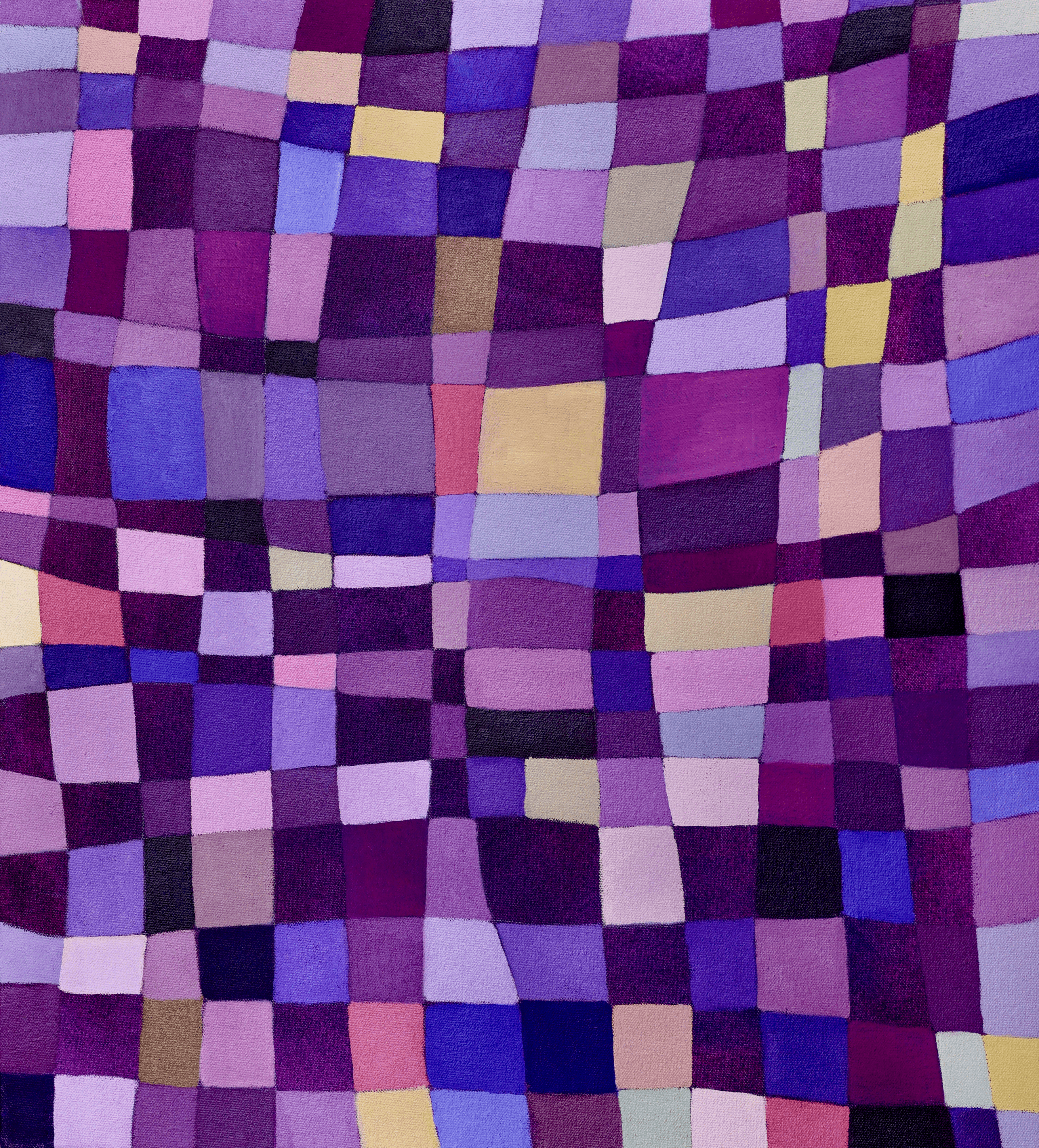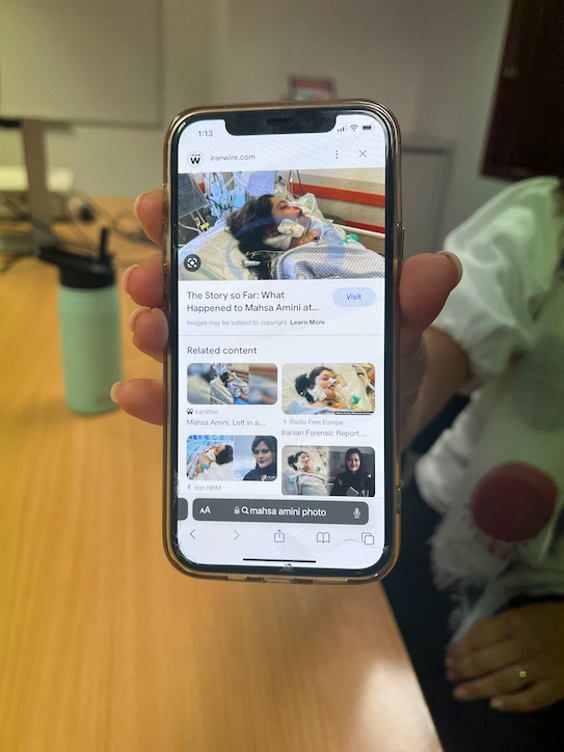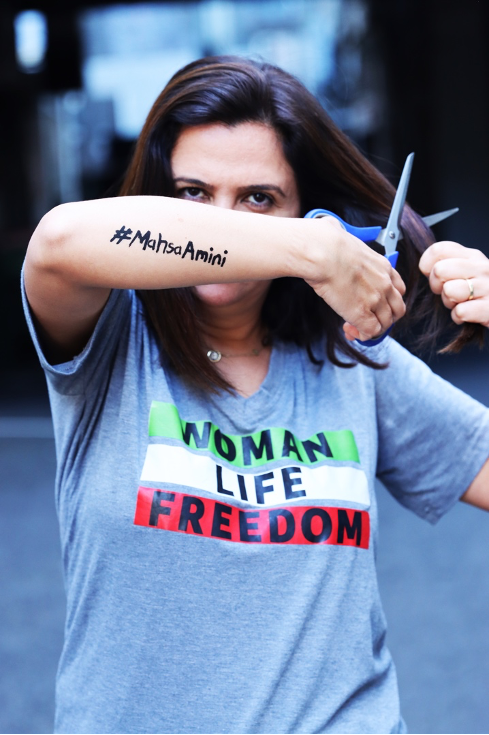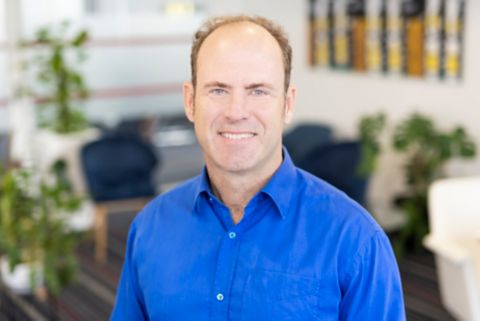This photo of her – it still gives me chills – was circulated widely on social media. Iranian people – women and men – were so outraged. They’d had enough.
People started taking to the streets. There are more than five million Iranians living outside of the country, and those Iranians came together to protest too. Mahsa Amini’s death brought us all together, from the USA, from Canada, from all over Europe and Australia. I’m not sure why it was this woman, this death, this time – but people had just had enough. It was too much. It was so unfair. She was only twenty-two years old.
I’ve joined in many of the protests. I’ve travelled to Canberra twice to protest. I go as often as I can.
At the protests and online, more and more women have started cutting their hair in an act of solidarity for Mahsa. My portrait is about the bravery of those women, putting myself in their shoes. It’s the least I can do.
The protests have been healing for me. It’s been like therapy.
We used to feel helpless as Iranians, and now we feel unity. The fact that there are protests all around the world is giving power and inspiration to those still in Iran.
What is your hope for Iran?
I just want freedom for Iran, a normal life. The people there deserve so much better than this.
It's such a beautiful country, with a rich and unique history. The Persian culture is just so beautiful, the food, the people, poetry and the traditions, everything. People are afraid to visit Iran. People can’t experience that culture. It’s such a shame.
How did you feel being part of We the Women of RMIT Training project?
I was very emotional. Matt and Elizabeth from the Student Experience team were really good, helping me with my poses, helping me to feel empowered. I just want to be a little bit useful. I want to contribute. I wanted to do something for the women of my country.
To be honest, even in the western world, there is still inequality between men and women. I wish and hope for a world where people respect humanity, no matter the gender.





